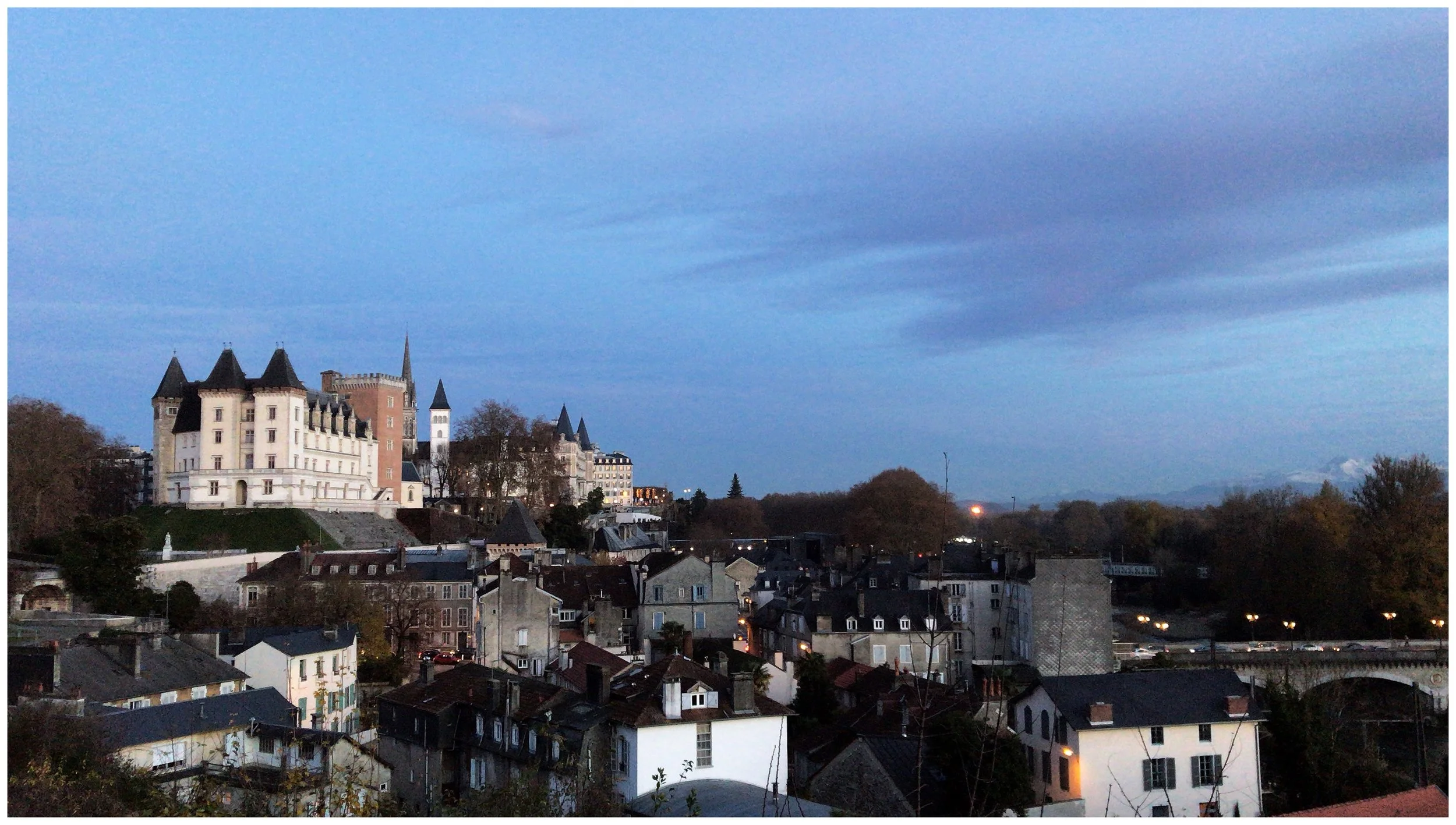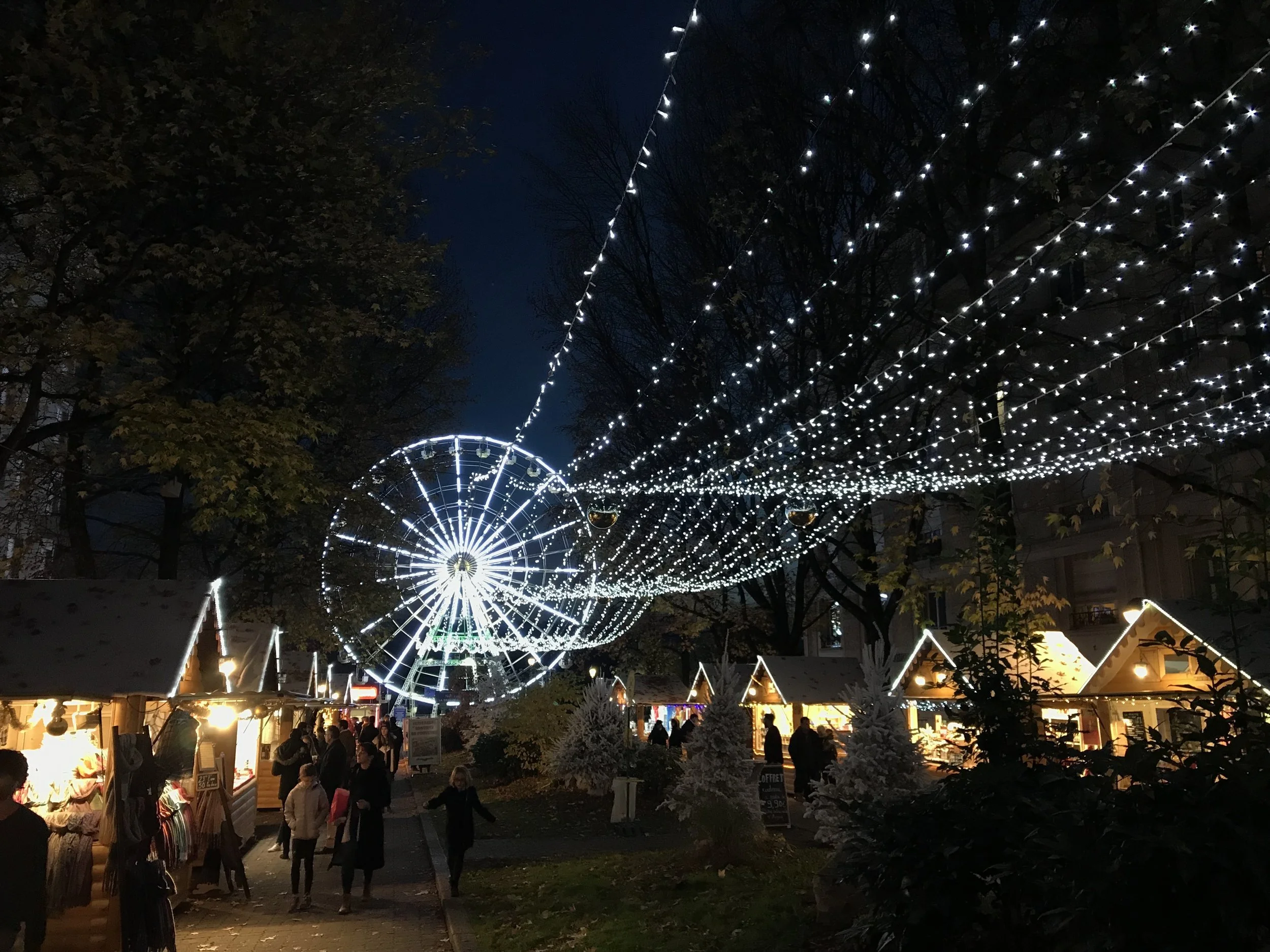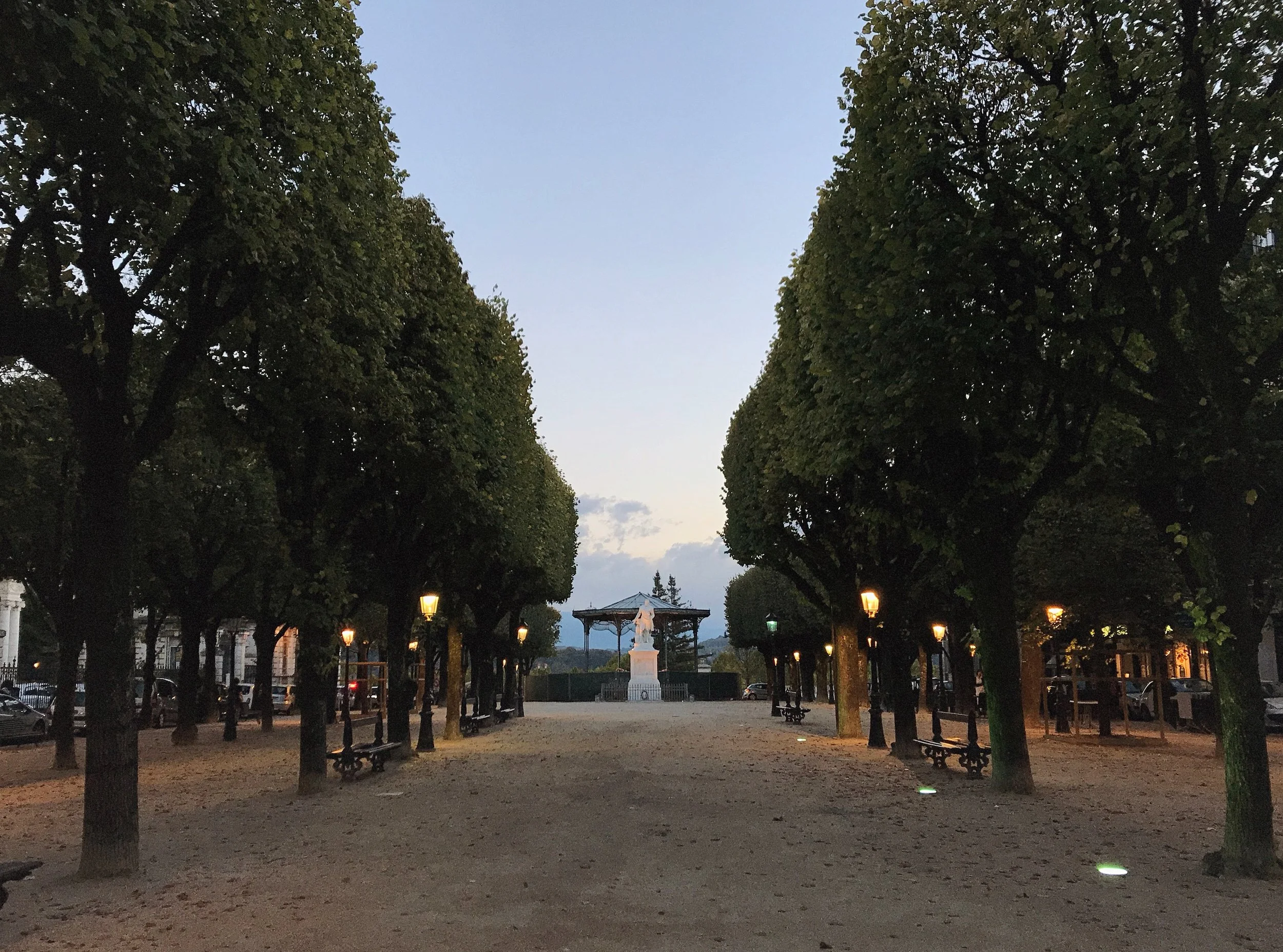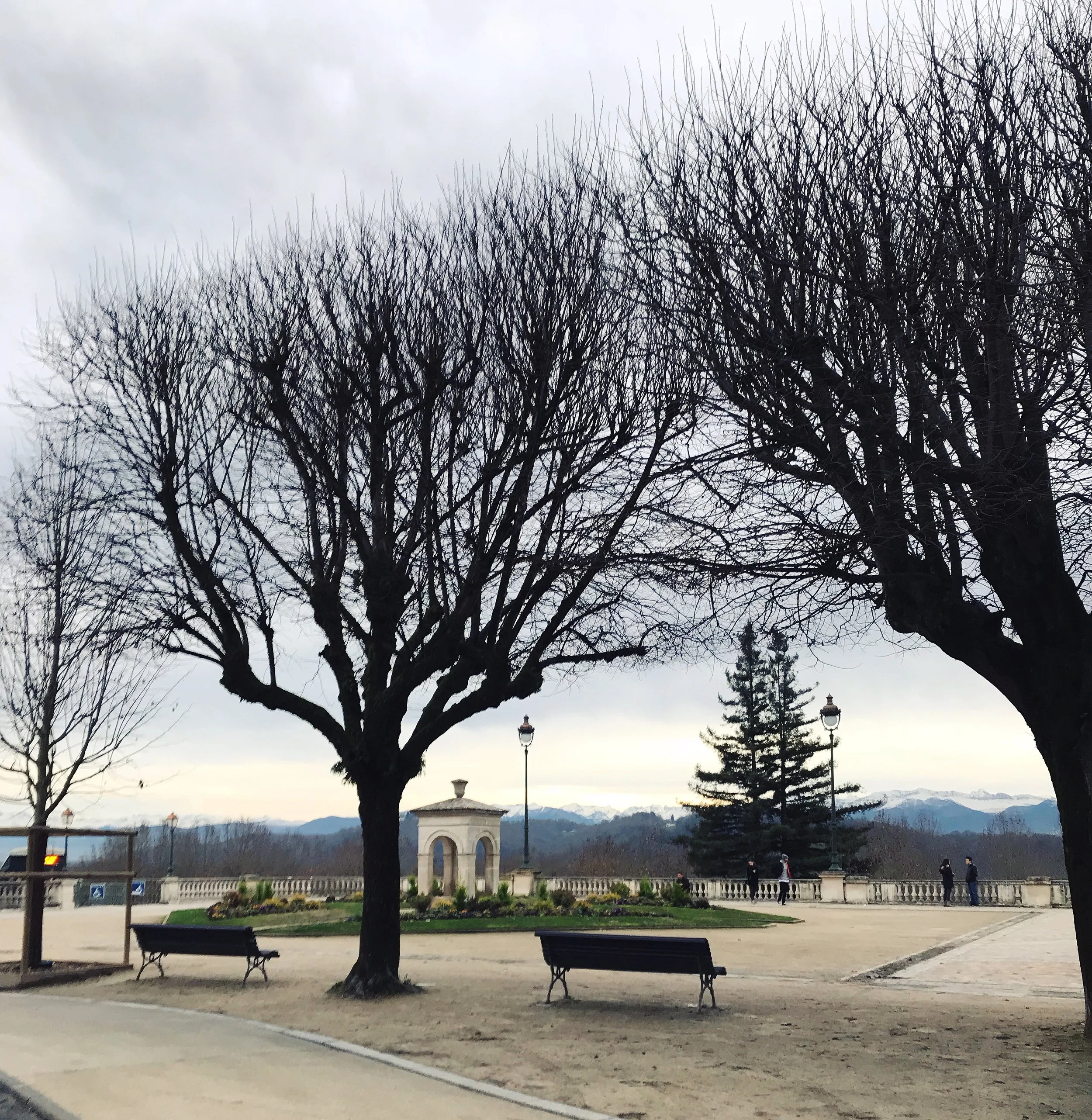On a warm day concluding September, I arrived at a white-washed train station. I was one of the only passengers to disembark that afternoon — the train continued eastward toward Toulouse, the tracks hemmed by a clear river. I had arrived at my final destination: the small city of Pau. A place I had never heard of before seeing it typed in my placement letter from the Académy de Bordeaux, informing me I’d been placed as an English language assistant in three different schools surrounding Pau.
Pô? I thought to myself. Pow? What was this place? I googled the city and encountered an article listing Pau as one of the calmest, or “most dead”, cities of France.
I had applied to the teaching program hoping for a French city full of life. I had listed Bordeaux, Toulouse, and Strasbourg as my top choices, wanting the fairy-tale charm, the café-lined streets, patios that spill out onto central squares shadowed by steeples and the passing flutter of pigeons. I wanted a cliché. The only reason I hadn’t applied to Paris was because the embassy had warned us we would barely be paid enough to cover living costs.
Standing outside Pau’s train station on that day in September, I had no idea I’d discover a small gem, teaching me a lesson in a kind of joy that can only accompany the unexpected.
View of the Castle from le Parc Royal
My supervisor — a warm, energetic woman — picked me up from the station and drove me to the university dorms where a room had been reserved for me. The door opened to reveal a space where I could touch both walls when spanning my arms. My bathroom was the size of an airplane washroom, with a shower head that sprays the sink and toilet and mirror all at once. A sliding window gave to the university tennis courts where magpies gathered and the parking lots where in the weeks to come I’d watch the trees slowly turn to gold. I left my blinds open at night so every morning I could see the sunrise over the peaks. I learned to cook for one all over again, making small talk with other floor mates in the communal kitchen, comprised of one microwave and four hot plates.
“It’s an adventure,” I reminded myself. An enthusiastic statement at first, slowly turning into a quiet kind of mantra. I immediately rented a bike for the year, and got to exploring:
Chipped shutters frame every window. Fountains gargle in tucked-away squares. The buses are rare that run later than 9:00 pm and on Sundays everything closes. The centre of town is criss-crossed by pedestrian shopping streets. I quickly learn that ordering a coffee in France means ordering a short espresso for North Americans. “Un café très très allongé,” I begin to ask — even then receiving a small cup. Being vegetarian, the fare is hard to come by in the South, where duck is the boasted specialty and meat finds its way into everything.
Le Parlement de Navarre, October
I soon discovered the Boulevard des Pyrénées, a primarily pedestrian boulevard that borders the southern face of the city. Its elevation offers an impressive panorama of the mountains and the unique feeling of being a top a grand villa’s walls. Palm trees and old pines both grow along the edge. Restaurants and cafés set their tables under trees. La Maison Constanti — an award-winning pastry shop — became one of my go-to spots where I could sit in the October sun and read, write, order home-made ice cream or try the daily smoothy.
From the boulevard, the city drops away. A funicular quietly carries people up and down the wall for free. Below, the station where trains come and go: West for the Atlantic, East for the Mediterranean.
I eventually got settled in my weekly teaching routine. To my private dismay I was asked to fill in at a kindergarten on Tuesdays, due to an assistant having dropped out of the program. I was faced with toddlers as young as three, little minds that had barely begun comprehending the ins and outs of their mother tongue. One boy cried every time I walked into the room, but most of them soon took to me fondly, and I to them. Julia comes to me every week and points to her coat, exclaiming, “Ça, c’est pink!” We are four months into the program, and still I find myself repeating to Sem and Marius that this is green, not grey.
On Thursday afternoons I upgrade a little to an elementary school where I teach bright-eyed kids the difference between ‘thirty’ and ‘thirteen’, between ‘sheep’ and ‘cheap.’ We play bingo with all of the numbers between 0 and 99 in a classroom that looks out onto snow-capped mountains. When one student jumps up and waves his card, I give him a Canadian flag pin and he holds it like a small piece of gold. Before I slowly articulate ‘see you next week’, one of my most eager students slips me a folded piece of paper. I open it out in the hall: a drawing of me in my black turtleneck holding flashcards. Meilleur prof, je t’adore, he’d scrawled below. On the last day before Christmas break, we reunite three classes and make pancakes, teaching the children how to order food: ‘I’d like Nutella, jam, peanut butter.”
For the holidays, modest gold garlands were strung across Pau’s streets and music spilled with static from a few odd speakers. A Christmas market popped up in the central place George Clémenceau, where one night I wandered with V and his sister before seeing a film. They got plastic cups of mulled wine and I considered huge slabs of nougat before V gently steered me away; as much as 25 euros for a small bag. There were a few stands selling nothing but roasted chestnuts and a blinking ferris wheel was assembled on the Boulevard. During the day, one could go round and round with a view of nothing but country hills leading up to the Pyrenees.
As late as December 22nd, I had a coffee under the trees on Maison Constanti’s patio, receiving texts from home with pictures of snow and the freezing Lake of Two Mountains. I had my journal out and was wearing only a light sweater; this really is alright, I found myself thinking.
Winter in Pau has been grey and rainy — temperatures rarely dropping below 2 degrees unless in the early hours of morning. But we are lucky enough to get cloudless days of warm sunshine. On these, I am able to train for the Paris marathon in shorts and a tank top in the middle of winter.
V and his red hat, December
Of course there are days on the bus from work, when I listen to music and watch the mountains and wonder what I’m doing with my life. Living abroad often feels like a strange state of limbo — you know that the visa expires eventually and when you get home, everything will be as it had been, waiting to be shaped into that elusive thing that is stability: a career, a salary, adulthood. I’ve got a pending law school application, funds that continue to evaporate, aspirations waiting to have life blown into them.
Le Boulevard des Pyrénées, sunset
And on those days I remind myself that this stage of life is a fleeting one. If there is a time to be broke and adventurous, it is now. I often return to a journal entry I'd written in early September as a recent graduate, before leaving my family, a job and colleagues I loved, the comforts of home:
Remind yourself that you are leaving for something more important than comfort. You are leaving for progress. You are leaving for growth.











